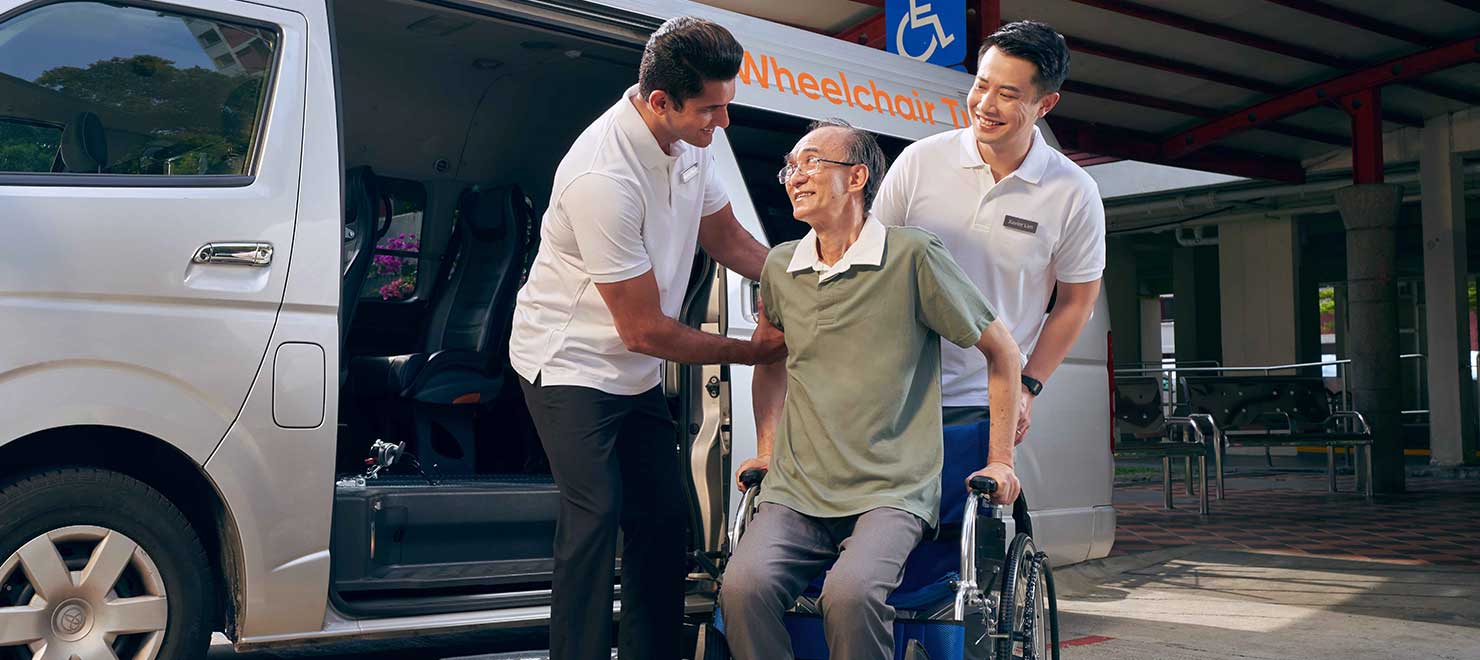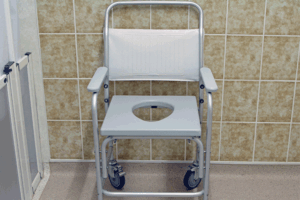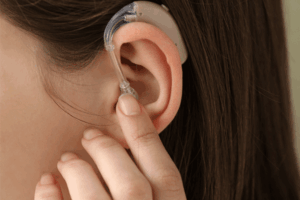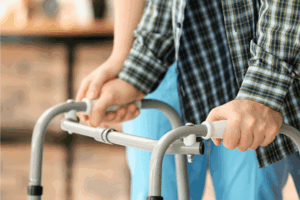
Physical challenges from ageing, illness, or injuries can affect the ability to move about and perform daily activities. Assistive devices and technology can help or improve your loved one’s mobility, so that they can participate in physical and social activities. These tools can boost their confidence and provide assurance when your loved one needs to move around at home safely. Using assistive devices may prevent issues like pressure sores and fall-related complications.
Commonly Used Assistive Devices
Here are some assistive devices frequently used by seniors or individuals recovering from injuries or illnesses, such as stroke:

Vision aids
Assist with poor vision and sun protection
E.g. Glasses or magnifying devices

Toilet and shower aids
Enhance bathroom convenience
E.g. Portable commodes, raised toilet seats, grab bars, and handles

Hearing aids
Amplify sounds, improving clarity for hearing

Mobility aids
Support walking, balancing, and weight distribution, reducing muscle and joint strains
E.g. Walkers, canes, wheelchairs, and scooters
- Use of non-slip mats or application of non-slip treatments on toilet floors
- Highlighting steps with fluorescent tape for better visibility at night
- If you stay in a multi-storey house, consider moving your loved one to a room on the ground floor
Getting the Right Device
To determine if your loved one needs an assistive device, consult the doctor, physiotherapist, or occupational therapist. They can assess your loved one and recommend appropriate devices. Proper fitting ensures effective and safe use.
Discuss any difficulties your loved one may have with activities such as:
- Standing up from a chair or bed
- Feeling unbalanced while walking
- Experiencing weakness or numbness in the legs
- Walking long distances
- Getting out of breath easily
- Lacking confidence while walking independently
- Limited movement on one side of the body
Familiarise yourself with the device’s instructions, proper use, precautions, and care. Note the warranty, maintenance, and service dealer information.
The Seniors’ Mobility and Enabling Fund (SMF) offers subsidies for selected mobility aids and home healthcare items.
Assistive Technology
Various assistive technology devices and software can help individuals with disabilities live independently. An assistive technology assessment can evaluate needs and recommend suitable options. Learn more about it here.
Gerontechnology products are innovative technologies designed to improve the quality of life for seniors by addressing their specific needs and challenges e.g. fall detection systems, medication management devices, and redesigned utensils to enhance safety and independence. For experiential learning about gerontechnology products, you may also arrange a visit to the Age+ Living Lab (an initiative by Singapore University of Social Sciences in partnership with SG Assist at The Caregiver Resource Centre).
